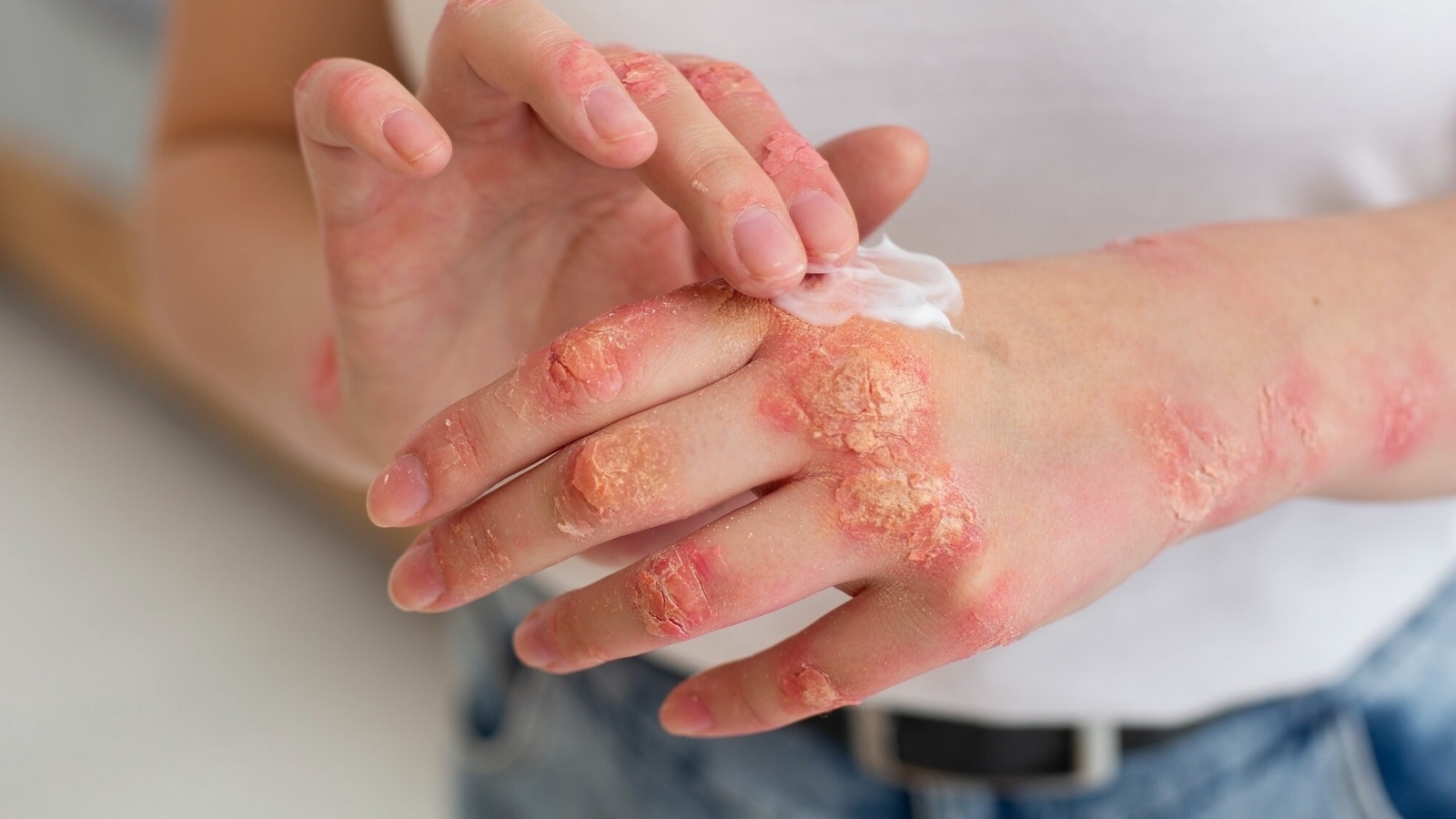Health
World Eczema Day 2025: Dermatologist Highlights Risk Factors and Symptoms

September 14, 2025, marks World Eczema Day, a global initiative aimed at raising awareness about atopic eczema, a chronic skin condition that affects millions. According to the European Federation of Allergy and Airways Diseases Patients’ Associations, this year’s theme is “Our Skin, Our Journey,” focusing on the lived experiences of patients. As part of this observance, Dr. Akanksha Sanghvi, a dermatologist and founder of Oprava Aesthetics, discusses the condition, its symptoms, and the risk factors associated with it.
Eczema, which affects approximately 2.6 percent of the world’s population, can manifest at any age. Dr. Sanghvi describes eczema as a skin disorder characterized by inflammation, dryness, itching, and sometimes redness or scaly patches. While it is a lifelong condition for many, she reassures that effective management through a tailored skincare routine, trigger identification, and appropriate medical treatment can help individuals lead comfortable lives.
Identifying Risk Factors for Eczema
Eczema does not have a single identifiable cause; rather, it emerges from a combination of genetic, environmental, and immune-related factors. Dr. Sanghvi elaborates on several risk factors that increase vulnerability to this condition:
1. **Family History**: Individuals with a family history of eczema, asthma, or hay fever are at a significantly higher risk of developing eczema. This predisposition is often linked to a genetic inclination towards sensitive skin. Research shows that mutations in the filaggrin gene (FLG), which is crucial for maintaining the skin barrier, are present in approximately 20-30 percent of those affected.
2. **Weakened Skin Barrier**: Many eczema sufferers experience a defect in their skin’s protective barrier, often due to an imbalance of essential lipids. This deficiency can lead to heightened skin dryness, making it more susceptible to irritants and allergens, which can trigger flare-ups.
3. **Allergies and Atopy**: Eczema is part of what is known as the “atopic triad,” which includes asthma and allergic rhinitis. Those with one of these conditions are more likely to develop another due to an overactive immune response. Everyday allergens such as dust and pollen can exacerbate symptoms.
4. **Climate and Environment**: Environmental factors play a significant role. Conditions such as dry, cold air, low humidity, and urban pollution can strip moisture from the skin, leading to irritation. Heat and sudden temperature changes can also aggravate the skin barrier.
5. **Irritants and Chemicals**: Frequent exposure to harsh soaps, detergents, and cleaning products can weaken the skin barrier. Professions that involve constant hand washing or exposure to chemicals, such as healthcare workers or food handlers, are particularly at risk for hand eczema.
6. **Stress**: Stress activates the skin-brain axis, releasing hormones that can disrupt the skin barrier and immune function, making the skin more reactive. This can create a cycle where itching leads to increased stress, exacerbating symptoms.
7. **Age**: Eczema is particularly common in infants and young children, with many experiencing improvement as they grow. However, some may develop it later in life.
Recognizing Symptoms of Eczema
Understanding the symptoms of eczema is crucial for early detection and management. Dr. Sanghvi outlines 11 key symptoms that may indicate the presence of eczema:
– Persistent itching, often worsening at night
– Dry, cracked skin
– Rashes or inflammation
– Redness
– Rough or scaly patches
– Tiny bumps that may leak fluid
– Thickened or leathery skin due to prolonged scratching
– Changes in skin pigmentation, such as darkening or lightening of patches
– Flare-ups that may come and go
This information serves as a guide for those who may suspect they have eczema. It is important to consider multiple symptoms collectively, as they can often overlap with other skin conditions.
While this article aims to provide valuable insights into eczema, it is not a substitute for professional medical advice. Individuals experiencing symptoms are encouraged to consult with a healthcare provider for tailored guidance and treatment options.
As World Eczema Day 2025 approaches, raising awareness about this condition can empower individuals to recognize symptoms and seek timely medical intervention. Understanding the risk factors associated with eczema is a vital step in managing this chronic skin condition effectively.
-

 World5 months ago
World5 months agoSBI Announces QIP Floor Price at ₹811.05 Per Share
-

 Lifestyle5 months ago
Lifestyle5 months agoCept Unveils ₹3.1 Crore Urban Mobility Plan for Sustainable Growth
-

 Science4 months ago
Science4 months agoNew Blood Group Discovered in South Indian Woman at Rotary Centre
-

 World5 months ago
World5 months agoTorrential Rains Cause Flash Flooding in New York and New Jersey
-

 Top Stories5 months ago
Top Stories5 months agoKonkani Cultural Organisation to Host Pearl Jubilee in Abu Dhabi
-

 Sports4 months ago
Sports4 months agoBroad Advocates for Bowling Change Ahead of Final Test Against India
-

 Science5 months ago
Science5 months agoNothing Headphone 1 Review: A Bold Contender in Audio Design
-

 Top Stories5 months ago
Top Stories5 months agoAir India Crash Investigation Highlights Boeing Fuel Switch Concerns
-

 Business5 months ago
Business5 months agoIndian Stock Market Rebounds: Sensex and Nifty Rise After Four-Day Decline
-

 Sports4 months ago
Sports4 months agoCristian Totti Retires at 19: Pressure of Fame Takes Toll
-

 Politics5 months ago
Politics5 months agoAbandoned Doberman Finds New Home After Journey to Prague
-

 Top Stories5 months ago
Top Stories5 months agoPatna Bank Manager Abhishek Varun Found Dead in Well









